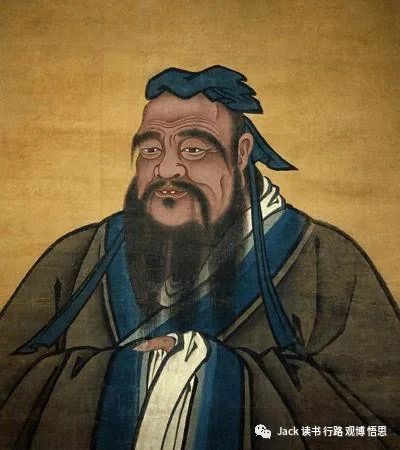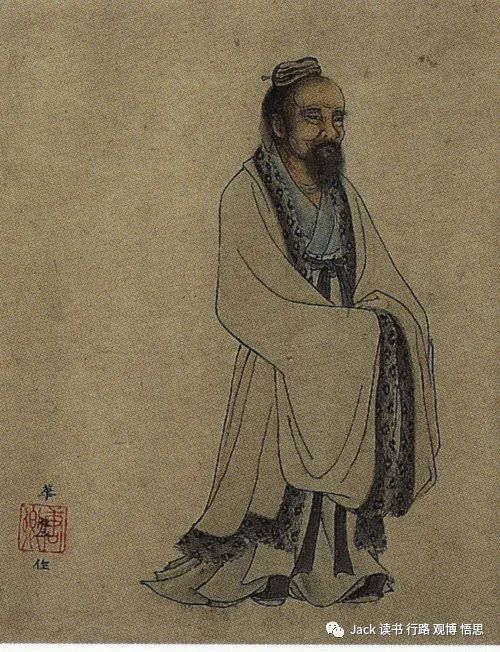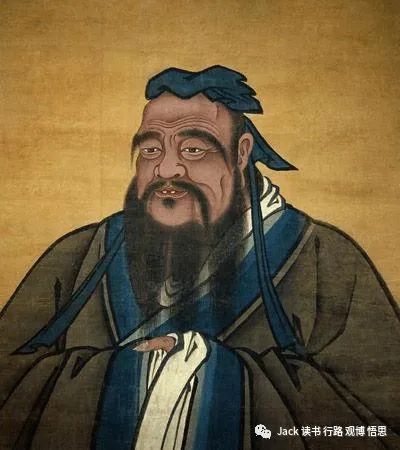Links Between East and West 10 - On Death 东西方的连接10 - 思考死亡
The concept of “death” is one that has grasped the imagination of every individual, every culture throughout history. However, thinking about the Grim Reaper brings more natural fear than any other sensation or emotion. To face the seemingly fearsome phenomenon, various philosophers across time have taken different perspectives to examine death. From the ancient Egyptians to the ancient Greeks, to the Romans, the Chinese, and the Renaissance and Enlightenment thinkers, death was the topic that was most profoundly thought about. This led them to possess a wider and more philosophical heart that helped them look at life in a more profound and meaningful way.

(Socrates on his death bed)

(Diogenes lives in a barrel, he is the founder of the Cynic School)
In ancient Greece, Socrates and Diogenes’ ideas can preview us with how they believe death is like. When Socrates heard that he was sentenced to death, he did not show any fear towards the sentence and the court. Instead, he told the jury that although he would leave the world, who would be happier, in the end, was still left without an answer. At his death bed, Socrates told his disciples one last lesson, which is that “death is not something to be feared”. Similarly, in Diogenes’ point of view, death is not something uncommon or to be fussed about. When asked what should be done to his body when he died, Diogenes replied: “Feed the dogs”. This reply suggests that Diogenes believed that death is a process of returning to nature and should be faced in a calm and even welcoming way.

(St. Augustine of Hippo)
After the Greeks, the Roman theologians inherited this line of thinking about death. For St. Augustine, death is a time to think deeply and let one’s heart truly immerse in the light of Christianity. At his death bed, St. Augustine ordered scribes to copy the poems of David and read them until tears came down. He chose not to die in a lavish fashion. He did not even leave a will behind. From this example, we can see, that St. Augustine took a serene stance against the Reaper, and his heart was able to rest with his Christian faith.

(Portrait of Confucius)

(Portrait of Zhuang Zi)
On the other side of the world, the Chinese philosophers developed intriguing thoughts about death. For Confucius, when he learned that he would not be living any longer, he once dreamt that “the world was out of order for such a long time, and nobody intrinsically understood my teachings. Last night, I was sitting on the sacrificial offerings that lay between two pillars, my coffin was situated right there.” From this passage, Confucius was feeling a bit desperate that his dream of realizing his ideal world did not totally come true. Yet, even though he was experiencing disappointment and even despair before he left the world, he still calmly showed his transcendence and deep insight as a philosopher and lawgiver. Another philosopher that lived roughly in the same period as Confucius was Zhuang Zi. When Zhuang Zi was about to pass away, his students prepared a luxurious funeral for him. Yet Zhuang Zi declined swiftly, saying that “my coffin would be the Sun and the earth”. For him, death is purely a transformation from one being into another. The cycle between life and death has never stopped, they are the beginnings of an unfinished ending. Zhuang Zi claimed, that once we all understand this principle, we can strike a balance between living and dying, and face death with a wider perspective.

(Portrait of Niccolo Machiavelli)

(Portrait of Thomas Hobbes)
After the Middle Ages, Europe entered the Renaissance and then the Enlightenment. During this period when fresh ideas emerged like the stars in the night sky, the topic of “death” was taken onto a new level and various novel viewpoints were created. For example, Machiavelli was an accomplished politician and author of politics. In a letter that was written two months before his death, Machiavelli exclaimed that he loved his soul and his country more than anything. Quite like Confucius, he was disappointed and desperate when in the end he was driven away from a position in the government of Florence and was unable to realize his political ambitions. Yet when death came, he was not at all struck by fear. Instead, knowing that he would not be in this world for long, he emphasized and argued with more determination for his political ideas, hoping that his legacies would remain. Thinking about death gave him even more courage and more inspiration that eventually makes him a respected politician and thinker in the modern age. In the 17thcentury, the great English political theorist Thomas Hobbes conveyed his beliefs on “death” in many of his notable writings. He pointed out that “we should not mourn for long when a person passes away, or else we would not have time to mourn for others”. This inspiring and novel way to address death reveals that after thoroughly examining this natural phenomenon, he possessed a comprehensive and placid manner when confronting his own end to his life.
Death is most naturally a daunting, inevitable thing for now. It seems that no matter how much we tell ourselves to not fear death, the Reaper still has a fearsome presence. However, although it is improbable, or even impossible, to become sages that can look at the world with a wise eye, it is possible to try to adopt their ideas and develop them further. Faced with our inevitable fate, what we should do is not to back down, but to attempt to shed some new light onto it and to give it meaning.
WORKS CITED
Biography.com Editors. "Thomas Hobbes Biography." Biography.com, A&E Television
Networks, 20 July 2020, www.biography.com/scholar/thomas-hobbes. Accessed 5
Sept. 2021.
Mark, Joshua J. "Diogenes of Sinope." Worldhistory.org, Joshua J. Mark, 2 Aug.
2014, www.worldhistory.org/Diogenes_of_Sinope/. Accessed 5 Sept. 2021.
Pope, Hugh. "St. Augustine on Death." Jstor.org, JSTOR, Nov. 1940, www.jstor.org/
stable/43811848. Accessed 5 Sept. 2021.
PICTURES CITED
https://www.posterlounge.co.uk/p/583415.html
https://www.history.com/topics/ancient-history/socrates
http://www.sfcatholic.org/bishopsbulletin/st-augustine-of-hippo/
https://www.wendangwang.com/doc/b720936c7959f45c55d27927
https://dialecticspiritualism.com/about-niccolo-machiavelli/
https://dialecticspiritualism.com/about-thomas-hobbes/
在历史上的每一种文化中,“死亡 "的概念是一个抓住了每个人的想象力的概念。然而,思考 "死神 "带来的恐惧比任何其他感觉或情绪都要自然。为了面对这个看似可怕的现象,不同时代的哲学家们采取了不同的视角来研究死亡。从古埃及人到古希腊人,再到罗马人、中国人,以及文艺复兴和启蒙时期的思想家,死亡是人们思考得最深刻的话题。这种思考使他们拥有更宽广和更有哲理的胸怀,帮助他们以更深刻和有意义的方式看待活着的生活。

(苏格拉底之死)

(第欧根尼住在一个桶里,他是犬儒学派的创始人)
在古希腊,苏格拉底和第欧根尼的想法可以让我们一览他们认为的死亡是怎样的。当苏格拉底听到他被判处死刑时,他没有对判决和法庭表现出任何恐惧。相反,他告诉陪审团,虽然他将离开这个世界,但最后谁会更快乐,仍然没有答案。在临终前,苏格拉底告诉他的弟子们最后一个教训,那就是 "死亡并不可怕"。同样,在第欧根尼的观点中,死亡也不是什么不寻常的事情,也不需要大惊小怪。当被问及他死后应该如何处理他的尸体时,第欧根尼回答说:"喂狗"。这个回答表明,第欧根尼认为,死亡是一个回归自然的过程,应该以平静甚至是欢迎的方式来面对。

(希波的圣奥古斯丁)
在希腊人之后,罗马神学家继承了这种对死亡的思考方式。对圣奥古斯丁来说,死亡是一个深入思考的时机,让人的心真正沉浸在基督耶稣的光芒中。在临终前,圣奥古斯丁命令抄写员抄写大卫的诗,一直读到眼泪流下来。他选择不以奢华的方式死去,他甚至没有留下遗嘱。从这个例子中,我们可以看到,圣奥古斯丁对死神采取了平静的姿态,他的心得以安放在他的基督教信仰中。

(孔子画像)

(庄子画像)
在世界的另一端,中国的哲学家们对死亡产生了耐人寻味的思考。对于孔子来说,当他得知自己将不再活着的时候,他曾经梦见 "世界在这么长的时间里失去了秩序,没有人从本质上理解我的教义。昨天晚上,我坐在两根柱子之间的祭品上,我的棺材就在那里。" 从这段话来看,孔子对自己实现理想世界的梦想没有完全实现而感到有些绝望。然而,尽管他在离开世界之前经历了失望甚至绝望,他仍然平静地展示了他作为一个哲学家和法律制定者的超越性和深刻的洞察力。另一位与孔子大致生活在同一时期的哲学家是庄子。当庄子即将去世时,他的学生为他准备了一个豪华的葬礼。但庄子迅速拒绝了,他说:"我的棺材将是太阳和地球"。对他来说,死亡纯粹是一种从一个生命到另一个生命的转变。生与死之间的循环从未停止过,它们是一个未完成的结局的开始。庄子声称,一旦我们都理解了这一原则,我们就能在生与死之间取得平衡,并以更广阔的视角面对死亡。

(马基雅维利画像)

(托马斯·霍布斯画像)
中世纪之后,欧洲进入文艺复兴时期,然后是启蒙运动。在这个时期,新鲜的思想像夜空中的星星一样涌现,"死亡 "这个话题被提升到一个新的高度,各种新奇的观点也随之产生。例如,马基雅维利是一位出色的政治家和政治作家。在他死前两个月写的一封信中,马基雅维利感叹道,他爱他的灵魂和他的国家胜过一切。与孔子一样,当他最后被赶出佛罗伦萨政府的一个职位,无法实现他的政治抱负时,他感到失望和绝望。然而,当死亡来临的时候,他一点也没有被恐惧所打动。相反,他知道自己不会在这个世界上呆很久,就更加坚定地强调和论证自己的政治主张,希望自己的遗产能够留下来。对死亡的思考给了他更大的勇气和更多的灵感,最终使他成为现代社会中受人尊敬的政治家和思想家。在17世纪,伟大的英国政治理论家托马斯-霍布斯在他许多著名的著作中传达了他对 "死亡 "的信念。他指出,"当一个人去世时,我们不应该长时间地哀悼,否则我们就没有时间为其他人哀悼"。这种鼓舞人心的、新颖的处理死亡的方式显示,在彻底研究了这一自然现象之后,他在面对自己的生命终结时拥有了一种全面而平和的态度。
死亡对现在人来说自然是一件令人生畏、不可避免的事情。似乎无论我们如何告诉自己不要害怕死亡,死神仍然有可怕的存在。虽然我们可能不会成为以睿智眼光看待世界的圣人,但尝试采用他们的想法并进一步发展是可能的。面对我们不可避免的命运,我们应该做的不是退缩,而是试图给它洒下一些新的光芒,并赋予它意义。
- 本文标签: 原创
- 本文链接: http://www.jack-utopia.cn//article/433
- 版权声明: 本文由Jack原创发布,转载请遵循《署名-非商业性使用-相同方式共享 4.0 国际 (CC BY-NC-SA 4.0)》许可协议授权










